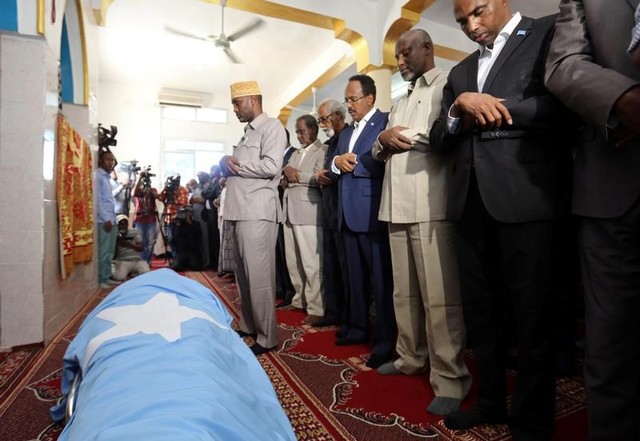Somalis in Dadaab mourn slain minister, call for inquiry


Somalis in Dadaab Refugee Complex have called on the government to investigate the killing of former Public Works Minister Abbas Siraji himself a former refugee at the camp terming his murder ‘shocking and brutal’.
In a statement Friday, the residents of the camp said President Mohamed Farmaajo jointly with Parliament should form a committee of inquiry into the killing of the minister whom they described as ‘inspirational and a role model’.
“We the entire youth of Dadaab Refugee Camps appeal to His Excellency the president of Somalia Mohamed Abdullahi Mohamed (Farmaakjo), Prime Miniser Hassan Ali Kheire and the two houses of parliament to set up an independent committee to investigate and get to the root cause of the horrific and brutal murder of the late minister,” the statement read in part.
President Farmaajo said Thursday he had ordered investigations into the killing of the minister adding the perpetrators must be brought to book. He also fired Auditor General Nur Farah a day after the latter declined a cabinet order to step aside to facilitate investigations into the matter.
A security guard attached to the former auditor general shot and killed the former minister at the entrance of Villa Somalia last Wednesday.
Siraj spent most of his life in Dadaab camp before proceeding to acquire a degree in computer science at University of Nairobi. He was elected MP during the 2016/17 elections and subsequently named minister in March.
The Dadaab residents expressed dismay on the murder of the minister and solidarity with his family and Somalis at large.
Separately, Moulid Hujale a friend of the deceased minister said the killing of the minister was an attack on the visions and hopes of Somali youth. Writing in the British newspaper, the Guardian, Hujawkle Hujale who grew up Siraji in Dadaab described his friend as a beacon of hope for young people in Somalia.
“I could not believe my ears when I first heard the news. I am still shaking now, as I write about the tragic death of my friend. He was a beacon of hope for us. The whole country is mourning today, but especially the young people who make up 75% of Somalia’s population. The killing of Abass was an attack on their hopes and visions,” said Hujale.